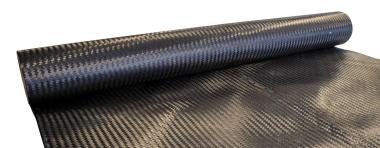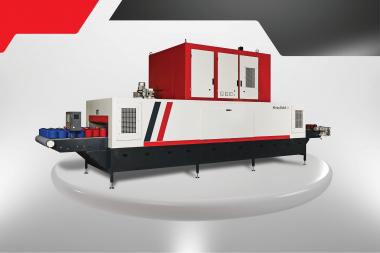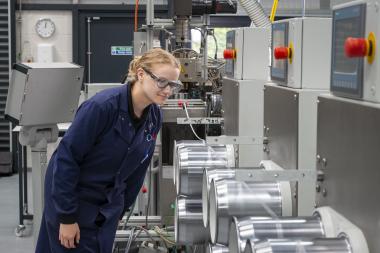Biodegradable breakthrough to curb fashion’s plastic footprint
Teysha Technologies has successfully validated KarmaCane, its patented sugar-derived biopolymer, in extreme field conditions. Products manufactured from KarmaCane withstood sub-zero temperatures and intense UV exposure during the record-breaking Mission: Everest expedition.
This real-world trial marks a turning point for the material platform, showing that biopolymers can perform under the harshest conditions while offering a safe and fully biodegradable end-of-life. KarmaCane has achieved OECD 310 biodegradability certification, confirming that it breaks down into non-harmful natural sugars rather than microplastics or acids.
A Versatile Materials Platform
The Everest test underscores KarmaCane’s ability to serve a wide variety of applications beyond eyewear. The platform can be engineered into very different formats:
- Hard solids for durable goods such as frames, tools, and structural components.
- Sticky liquids as natural film-formers in cosmetics, replacing synthetic polymers.
- Water-based dispersions as hydrophobic coatings for paper and cardboard packaging.
- Filaments for 3D printing, opening pathways for additive manufacturing.
This flexibility allows industries to adapt KarmaCane to specific needs, from packaging and consumer goods to medical devices and marine applications.
Manufacturing & Scale
KarmaCane has already been validated across multiple production methods:
- Extrusion into pellets and filaments.
- Injection moulding at lab scale.
- Hydrophobic coatings for fibre- and paper-based packaging.
Teysha is preparing to scale monomer production to tonne-level manufacture, using third-party industrial assets to expand rapidly without infrastructure bottlenecks. Early modelling indicates KarmaCane products will be cost-competitive with PET, ABS and other mainstream plastics once at scale.
Commercial Potential Across Sectors
KarmaCane’s design directly addresses regulatory and commercial pressures:
- Cosmetics: Eliminates the need for microplastics used as thickeners, stabilisers and film-formers. Replacing these polymers could remove up to 8,700 tonnes annually from the cosmetics sector alone.
- Packaging: Early coating trials show water-resistant barriers for paper and cardboard without plastic laminates.
- Marine environments: Rapid aquatic biodegradation without persistent fragments makes KarmaCane suitable for coastal and offshore use.
- Medical: Degradation into alcohol and CO₂ rather than acids could reduce inflammation risks compared to existing biodegradable polymers.
Market Context
Global regulation is driving urgent demand for sustainable alternatives:
- The European Chemicals Agency (ECHA) is rolling out restrictions on microplastics in consumer products.
- International bans on single-use plastics are accelerating the need for scalable biodegradable solutions.
Matthew Stone, CEO of Teysha Technologies says that “The Everest test proves KarmaCane can survive the harshest environments. But more importantly, it shows that our polymer platform can be engineered to meet the needs of very different industries — from packaging to cosmetics to medical applications.”
Karen Wooley, CTO and inventor at Teysha Technologies explains, “KarmaCane is not just one product. It’s a materials platform. We can design it as a solid, a liquid, or a water-based suspension, depending on the application. That versatility sets it apart from other biopolymers and is key to scaling sustainable solutions.”
Teysha Technologies develops biodegradable polymers from natural sources to replace petroleum-based plastics across multiple industries. Founded in 2017, the company has secured multiple patents for its KarmaCane biopolymer platform and maintains research partnerships with Texas A&M University and other leading institutions.
Teysha Technologies





























